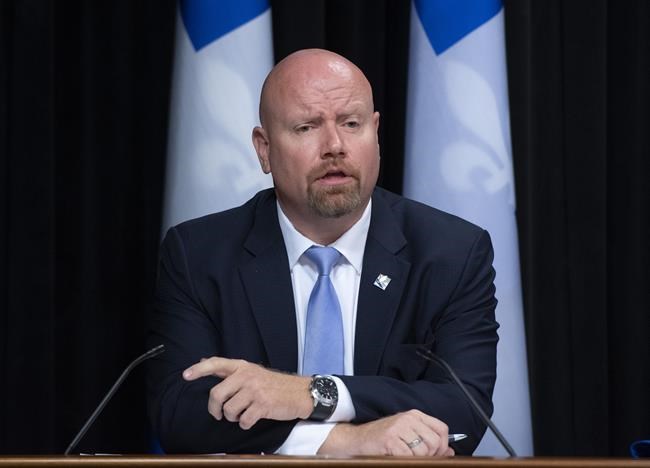Quebec tables bill to give families of missing Indigenous children access to records
Advertisement
Read this article for free:
or
Already have an account? Log in here »
To continue reading, please subscribe:
Monthly Digital Subscription
$1 per week for 24 weeks*
- Enjoy unlimited reading on winnipegfreepress.com
- Read the E-Edition, our digital replica newspaper
- Access News Break, our award-winning app
- Play interactive puzzles
*Billed as $4.00 plus GST every four weeks. After 24 weeks, price increases to the regular rate of $19.00 plus GST every four weeks. Offer available to new and qualified returning subscribers only. Cancel any time.
Monthly Digital Subscription
$4.75/week*
- Enjoy unlimited reading on winnipegfreepress.com
- Read the E-Edition, our digital replica newspaper
- Access News Break, our award-winning app
- Play interactive puzzles
*Billed as $19 plus GST every four weeks. Cancel any time.
To continue reading, please subscribe:
Add Free Press access to your Brandon Sun subscription for only an additional
$1 for the first 4 weeks*
*Your next subscription payment will increase by $1.00 and you will be charged $16.99 plus GST for four weeks. After four weeks, your payment will increase to $23.99 plus GST every four weeks.
Read unlimited articles for free today:
or
Already have an account? Log in here »
Hey there, time traveller!
This article was published 09/12/2020 (1769 days ago), so information in it may no longer be current.
QUEBEC – The Quebec government introduced legislation on Wednesday that would allow relatives of Indigenous children who disappeared or died after being admitted to health-care facilities to obtain information about their loved ones.
Indigenous Affairs Minister Ian Lafreniere tabled the bill, saying he hoped it would help families get answers.
Several dozen children died or were placed in foster care after being admitted to health or social-services facilities between the 1950s and 1989.

In some cases, the parents never learned what happened to the children.
The new law would require health-care facilities, social services, organizations and religious congregations to transmit personal information about the missing or deceased children to their families.
It also gives the government the power to launch an investigation into organizations that don’t comply.
Resources will be put in place to ensure families understand the medical data and are supported in their search, including helping them to locate living family members who were sent to foster care.
Lafreniere said some parents have reached the age of 89 or 90 and still don’t know what happened to their child.
“In some cases, we’re talking about children who were given for adoption,” he said.
“In other cases, there are children who died, but there’s no confirmation. We don’t know where they’re buried, we don’t have details.”
Lafreniere promised that the families would be given a telephone number to call, as well as a file number.
He said funding would be put in place to hire a team to support the families and help them in their research.
This report by The Canadian Press was first published Dec. 9, 2020

